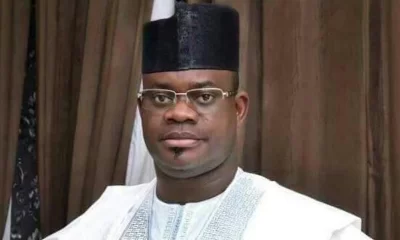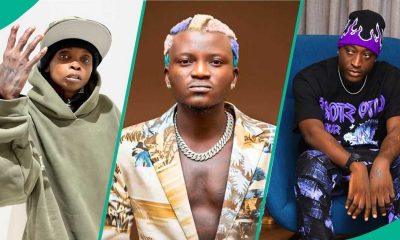In the thick of society’s very conservative and judgmental reaction to buzz cut women, millennial women are making a statement.
“But if a woman have long hair, it is a glory to her: for her hair is given her for a covering”
– 1 Corinthians 11:15
I remember this vividly. It was just like any other day in Lagos. I was in a colleague’s ride on 3rd Mainland Bridge heading to the Island.
A car came close to her car, and the woman in the passenger’s seat had shock written all over her face when she saw who was driving the car. My female colleague was rocking a buzz cut, Amber Rose-type buzz cut.
The lady in the other car couldn’t believe a woman would cut all of her hair. She tapped the man driving the car, I assume was her husband, to look out the outrageous sight. Her face morphed into anger that a Nigerian woman would cut her hair so low.
In 2017, I saw a beautiful lady, with spectacles driving a red Honda Accord car at Obafemi Awolowo way, Ikeja, Lagos.
She struggled to turn her car at the neck-breaking pace that Lagos required. She made a number of yellow danfo buses of Lagos wait in line, as she struggled with her steering wheels.
She had a buzz cut, tinted gold. The horde of angry men insulted her, saying many nasty things about her haircut.
In their eyes, she couldn’t have been any better than a prostitute; who got her nice red car from a sugar daddy.
What is it about a Nigerian woman’s hair?
Just like with black women, a Nigerian woman’s hair is her beauty, source of pride and strength. In narrow terms, the essence of a Nigerian woman’s hair is defined by its fullness and not when it is trimmed or when she decides to go bald.
This is why eyebrows are raised when a Nigerian woman rocks a buzz cut, or decides to go bald. In conservative circles, it is a rejection of her spiritual glory and pride as a woman.
Culturally, going bald is reserved for extreme situations. In South-East Nigeria, it is customary practice for a woman’s hair to be shaved when her husband dies.
Female Nigerian millennials have been embracing the buzz cut and bald look for a while now. A couple of them speak to Pulse on why they decided to it.
Funa Ikenta, a digital marketing specialist & pastry chef who now carries a buzz cut with a killer fade, tinted gold says, “I had always been a confident, stare-back-at-you-as-you-stare-at-me person so it never really bothered me. My friends laughed and teased me and called me so many names like Zlatan (The rapper) (laughs).
“Family members, well, they always knew it was something I could do so no hassles from them, strangers it was just the stares that could get uncomfortable till I stare back and they look away (laughs). Plus it helped that I looked great in it (laughs). So if I’m being completely honest, I receive tons and tons of flattery and sweet, positive compliments about it so I loved it. ”
Itunu, a recent graduate awaiting her NYSC call-up tells Pulse that, “I cut my hair first, because the weather is crazy, the heat is too much. Exposing my head gives some sort of relief. Secondly, it’s cheaper to maintain..”
Speaking to Pulse, Ayom Stella, an entrepreneur says “I cut my hair because I just wanted to try something new, secondly the cost of making hair is too much and I have a target for this year so I am trying save some money.”
Health reasons
Not all women decide to go for the big chop because of the flex, some do it for health reasons. Damilola Banji-Ojo (not Damilola Marcus),an artisan says, “I did the big chop two months ago because of dandruff.”
Also, Elizabeth tells Pulse that, “I did the haircut personally because my hair wasn’t as healthy as I’d have loved it. So I thought to cut and have fun before I start growing again.”
While speaking with Pulse, as explained above, Itunu tells Pulse she has a health condition which makes her lose hair. This was one of the reasons she decided to cut it all off. After giving her first two pertinent reasons, Itunu says, “Thirdly, I have a medical condition that makes me lose hair so I felt it was best to cut it instead of having to spend money to help it grow and all that.”
Hair and Freedom
In pop culture, media and entertainment, hair has been used as a symbol of expressing free will – These thoughts awaken echoes of the classic India Arie song featuring Akon, ‘I Am Not My Hair.’
Hair and Tradition
In Igbo culture, when a woman is widowed, her hair gets shaved bald to signify her widowhood. Sometimes too, other members of the family also shave their heads to signify the their mourning period or loss.
In addition, the Ezekiel 27:31 of the Bible reads, “It might have originated from the bible,the Isrealites put on sackcloth and shave their heads anytime they were mourning.”
Other people, however, believe that it’s simply to signify mourning, to stand the mourners out of a crowd. Thus, human hair becomes a currency to trade with – hair can easily be noticed and it covers the scalp.
Hair then must have such power if robbing people is to signify subjecting them to the dire state of mourning. That means hair must be generally perceived as a premium tool of beauty or humanity.

 Football1 week ago
Football1 week ago
 Business1 week ago
Business1 week ago
 Latest1 week ago
Latest1 week ago
 Business1 week ago
Business1 week ago
 Entertainment1 week ago
Entertainment1 week ago
 Latest1 week ago
Latest1 week ago
 Latest1 week ago
Latest1 week ago
 Latest1 week ago
Latest1 week ago

